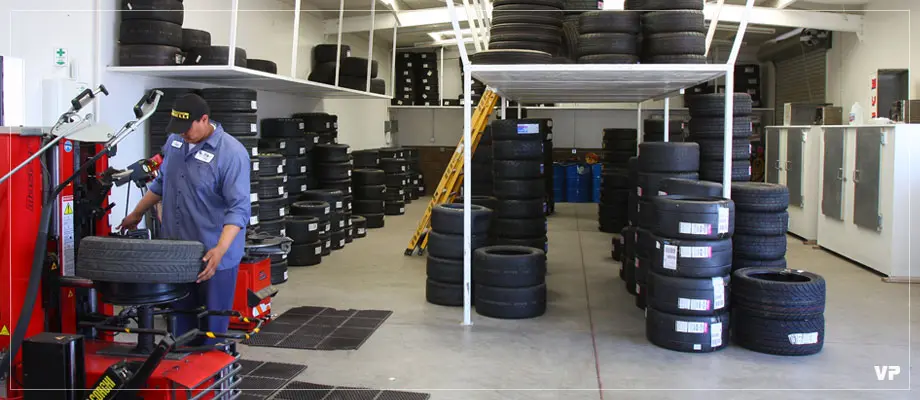Start Your Dream Tire Business in the Lone Star State
Are you considering entering the automotive industry in the Lone Star State? Learning how to start a tire shop in Texas can be an exciting and profitable venture. This comprehensive guide will walk you through the essential steps to launch your own tire business in Texas, from initial planning to grand opening and beyond.
Why Start a Tire Shop in Texas?
Texas, with its vast network of highways and robust automotive culture, presents a prime opportunity for tire shop entrepreneurs. The state’s diverse climate and terrain create a constant demand for tire services. Moreover, Texas’s business-friendly environment makes it an attractive location for new ventures.
Before diving into the specifics of how to start a tire shop in Texas, let’s explore some key reasons why this business can thrive in the state:
- High vehicle ownership rates
- Diverse weather conditions affecting tire wear
- Strong economy and population growth
- Extensive road networks
- Favorable business regulations
Now, let’s delve into the step-by-step process of launching your tire shop in the Lone Star State.
Step 1: Develop a Solid Business Plan
The foundation of any successful business is a well-crafted business plan. When figuring out how to start a tire shop in Texas, your plan should include:
- Executive summary
- Market analysis
- Competitive landscape
- Services offered
- Marketing strategy
- Financial projections
- Operational details
Your business plan will serve as a roadmap and can help secure funding from investors or lenders. Additionally, it will force you to think critically about every aspect of your future tire shop.
Step 2: Choose Your Business Structure
Selecting the right business structure is crucial when learning how to start a tire shop in Texas. Common options include:
- Sole Proprietorship
- Partnership
- Limited Liability Company (LLC)
- Corporation
Each structure has its own advantages and disadvantages regarding taxes, liability, and operational flexibility. Consult with a business attorney or accountant to determine the best fit for your tire shop.
Step 3: Register Your Business and Obtain Licenses
Once you’ve chosen your business structure, it’s time to make it official. Follow these steps to register your tire shop in Texas:
- Register your business name with the Texas Secretary of State
- Obtain an Employer Identification Number (EIN) from the IRS
- Register for state and local taxes
- Apply for necessary business licenses and permits
Research local regulations in your specific Texas city or county, as additional permits may be required.
Step 4: Secure Funding for Your Tire Shop
Starting a tire shop requires significant capital investment. Consider these funding options:
- Personal savings
- Bank loans
- Small Business Administration (SBA) loans
- Investors or partners
- Crowdfunding
Prepare a detailed financial projection to determine how much funding you’ll need to start and sustain your business until it becomes profitable.
Step 5: Find the Perfect Location
Location is critical when learning how to start a tire shop in Texas. Consider these factors:
- Proximity to high-traffic areas
- Accessibility for customers
- Adequate parking space
- Zoning regulations
- Competition in the area
- Lease or purchase costs
Remember, your location can significantly impact your tire shop’s success, so choose wisely.
Step 6: Obtain Insurance Coverage
Protect your new tire shop with comprehensive insurance coverage. Essential policies include:
- General liability insurance
- Property insurance
- Workers’ compensation insurance
- Commercial auto insurance
- Professional liability insurance
Consult with an insurance agent experienced in automotive businesses to ensure you have adequate coverage.
Step 7: Source Equipment and Inventory
Equip your tire shop with high-quality tools and maintain a diverse inventory. Essential equipment includes:
- Tire changers and balancers
- Alignment machines
- Lifts and jacks
- Air compressors
- Hand tools
For inventory, stock a variety of tire brands and sizes to cater to different customer needs and preferences.
Step 8: Hire and Train Your Staff
Build a team of skilled professionals to ensure your tire shop’s success. Key positions may include:
- Tire technicians
- Customer service representatives
- Managers
- Bookkeeper or accountant
Invest in comprehensive training programs to maintain high service standards and stay updated on the latest tire technologies.
Step 9: Develop a Marketing Strategy
Create a robust marketing plan to attract customers to your new tire shop. Consider these strategies:
- Build a user-friendly website
- Utilize social media platforms
- Implement local SEO techniques
- Offer promotional discounts for new customers
- Partner with local businesses for cross-promotion
- Sponsor community events
Remember to highlight your unique selling points and emphasize the quality of your services.
Step 10: Establish Vendor Relationships
Forge strong relationships with tire manufacturers and distributors. This will help you:
- Secure competitive pricing
- Ensure a steady supply of inventory
- Stay informed about new products and industry trends
- Potentially obtain marketing support from manufacturers
Research various suppliers and negotiate favorable terms to maximize your profitability.
Step 11: Implement Efficient Systems and Processes
Streamline your operations with effective systems and processes. Consider implementing:
- Point-of-sale (POS) software
- Inventory management systems
- Customer relationship management (CRM) tools
- Appointment scheduling software
- Accounting and bookkeeping systems
Efficient operations will improve customer satisfaction and boost your bottom line.
Step 12: Comply with Environmental Regulations
Tire shops must adhere to specific environmental regulations. Ensure your business complies with:
- Proper tire disposal methods
- Used oil and fluid recycling
- Hazardous waste management
- Air quality standards
Stay informed about Texas’s environmental regulations and implement eco-friendly practices in your tire shop.
Step 13: Plan Your Grand Opening
Create excitement around your new tire shop with a well-planned grand opening event. Consider:
- Offering special discounts or promotions
- Hosting a community event or barbecue
- Inviting local media for coverage
- Conducting tire safety workshops
- Partnering with local car clubs or automotive enthusiasts
A successful grand opening can generate buzz and attract long-term customers.
Step 14: Continuously Improve and Adapt
The automotive industry is constantly evolving. To ensure long-term success:
- Stay updated on industry trends and technologies
- Regularly train your staff on new techniques and products
- Solicit and act on customer feedback
- Monitor your competition and adapt your strategies accordingly
- Explore opportunities for expansion or diversification
Additional Considerations for Starting a Tire Shop in Texas
As you work on how to start a tire shop in Texas, keep these additional factors in mind:
Seasonal Demand in Texas
Texas experiences diverse weather conditions throughout the year, which can affect tire demand:
- Summer: High temperatures can lead to increased tire wear
- Winter: Some areas may require winter tires during colder months
- Spring: Rainy seasons may boost demand for all-season tires
- Fall: Many customers prepare for winter, creating a potential sales spike
Plan your inventory and promotions around these seasonal trends to maximize sales opportunities.
Texas-Specific Regulations
Familiarize yourself with Texas-specific regulations that may affect your tire shop:
- Texas Wheel Weight Law: Prohibits the use of lead wheel weights
- Tire pressure monitoring system (TPMS) requirements
- State inspection regulations for vehicles
Staying compliant with these regulations will help you avoid potential legal issues and build trust with customers.
Building Customer Loyalty in the Lone Star State
Texans value personalized service and community connections. Consider these strategies to build customer loyalty:
- Offer a loyalty program with rewards for repeat customers
- Provide free tire rotations or pressure checks between services
- Host educational workshops on tire maintenance and safety
- Support local charities or sponsor community events
- Develop partnerships with local auto dealerships or repair shops
Expanding Your Services
While focusing on tires is essential, consider offering additional services to increase revenue:
- Wheel alignment and balancing
- Brake services
- Oil changes and basic maintenance
- Battery replacement
- TPMS service and repair
Diversifying your services can help attract more customers and increase average transaction values.
Embracing Technology in Your Texas Tire Shop
Incorporate technology to improve your customer experience and operational efficiency:
- Implement online appointment booking systems
- Use digital vehicle inspection tools
- Offer text or email notifications for service reminders
- Utilize social media for customer engagement and promotions
- Consider mobile tire installation services for added convenience
Navigating Texas’s Competitive Landscape
Research your local competition and develop strategies to differentiate your tire shop:
- Offer unique services or specializations (e.g., performance tires, commercial fleet services)
- Provide exceptional customer service and build a strong reputation
- Develop partnerships with local businesses for mutual referrals
- Consider niche markets, such as classic car enthusiasts or off-road vehicle owners
Conclusion: Your Path to Texas Tire Shop Success
Learning how to start a tire shop in Texas involves careful planning, dedication, and hard work. By following this comprehensive guide and staying attuned to the unique aspects of the Texas market, you’ll be well-equipped to launch and grow a successful tire business in the Lone Star State.
Remember, the key to long-term success lies in providing excellent customer service, staying adaptable to industry changes, and continuously improving your operations. With the right approach and a commitment to quality, your Texas tire shop can become a trusted community resource and a profitable enterprise.
As you embark on this exciting journey, stay focused on your goals, remain patient during the initial stages, and don’t hesitate to seek advice from industry experts or fellow entrepreneurs. With determination and the right strategies, you can turn your dream of owning a successful tire shop in Texas into a reality.






